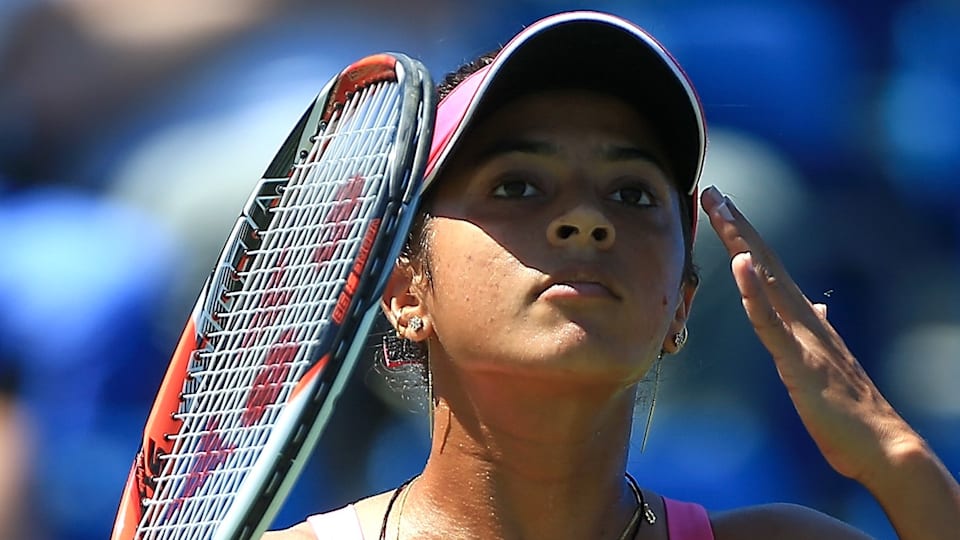Meditating at early age makes you self-aware, says Ankita Raina
The tennis ace gave tips on dealing with the mental aspect of the game and talked about how a sports psychologist helped her.

Indian tennis player Ankita Raina advocated for the introduction of meditation to youngsters as it helped them with various aspects of their mental well-being in a webinar hosted by the All India Tennis Association (AITA).
“I feel meditating at a young age will be really helpful. I began doing it when I was 18, but it can be done in moderation with kids as young as 8 or 10,” she said in a chat with coach Suresh Sonachalam.
“It helps you become more self-aware. I cannot really explain how it works but it clears the brain and you will know what I mean when you actually go through the process.”
Ankita Raina, who is the highest-ranked Indian tennis player on the WTA circuit (163rd) also spoke how she sought the help of a sports psychologist when she was making the transition to the senior level.
“I started mental training with her and she would teach me a few exercises and drills that I could use on court and that experience helped build my game,” she revealed.
The importance of ‘failure’
Results are also a part of the mental process. While a sportsperson aims to win, losing is also an inevitable part of the journey.
And it's these experiences, according to Ankita Raina, are essential in moulding an athlete.
“You learn from your experiences in matches and I feel ‘failure’ or losing matches is as equally important as winning,” said the 27-year-old.
“When you lose, you tend to consult your coach, your parents and even ask yourself about what went wrong. It is a key part of the learning process.
‘Special’ Fed Cup
The Ahmedabad girl was part of the Indian tennis team that recently made the Fed Cup playoffs for the first time in the history of women’s tennis in India and described it as a special experience.
“The Fed Cup is always special to me. It is one week of the year when we all play together for the country,” she told Mumbai Mirror. “It was also inspiring to have Sania (Mirza) back, especially after the birth of her son.”
Ankita Raina added that she is following a strict daily routine and doing her best to keep fit and stay ready for action on the court, whenever it resumes.
“We have to prepare for everything,” she reasoned. “We don’t know when the tournaments start but we cannot let our guard down."
